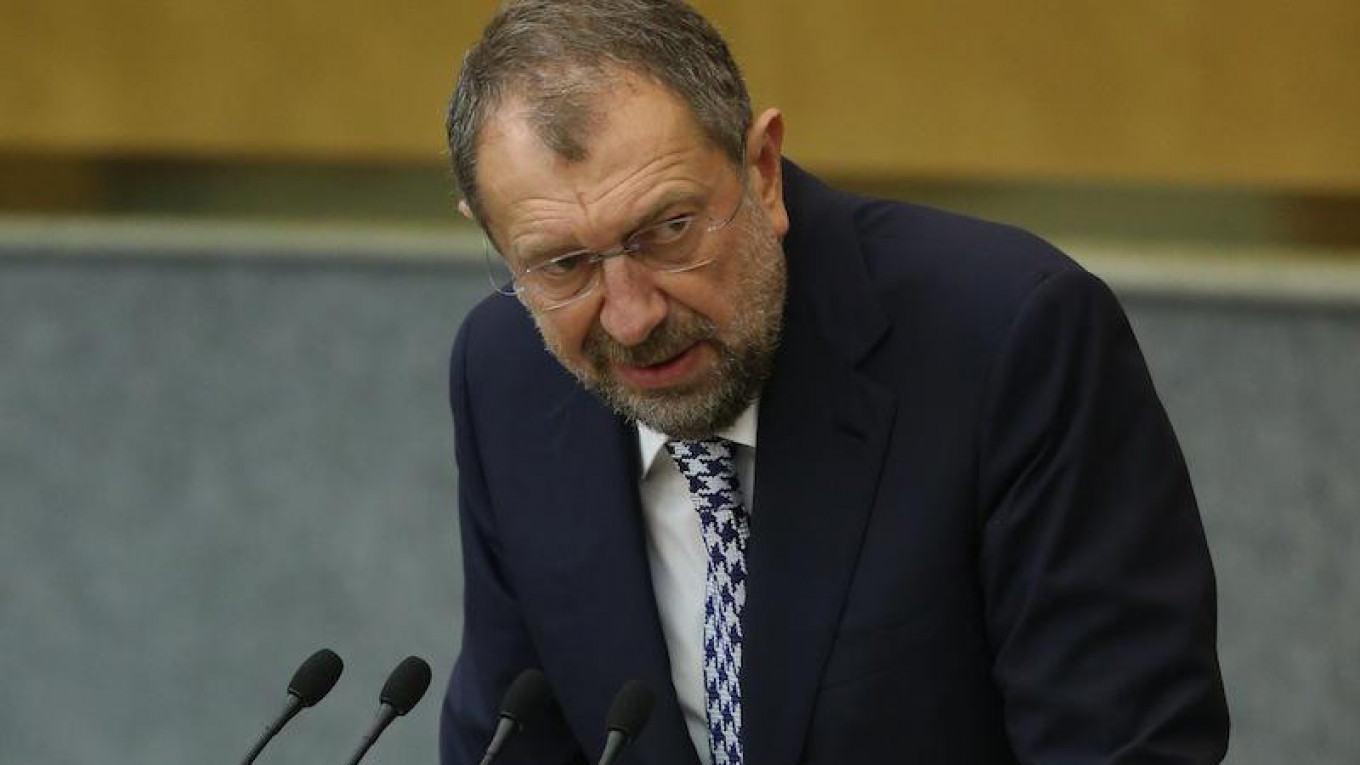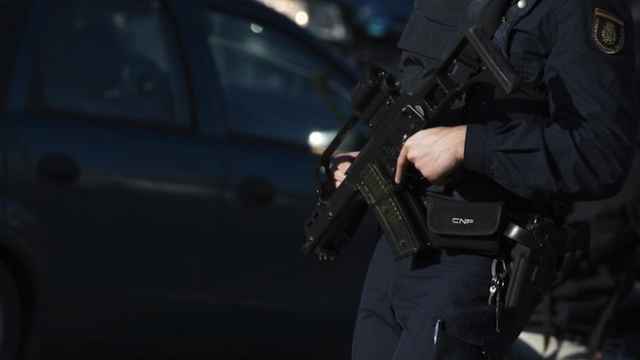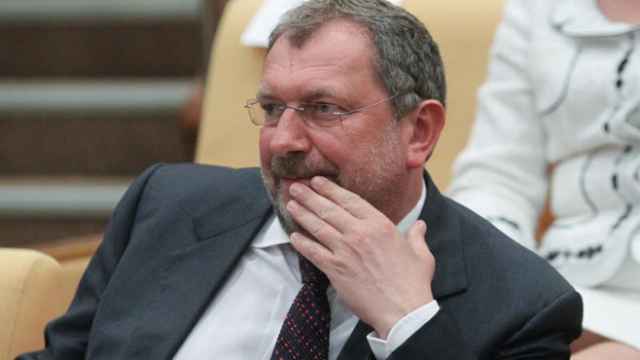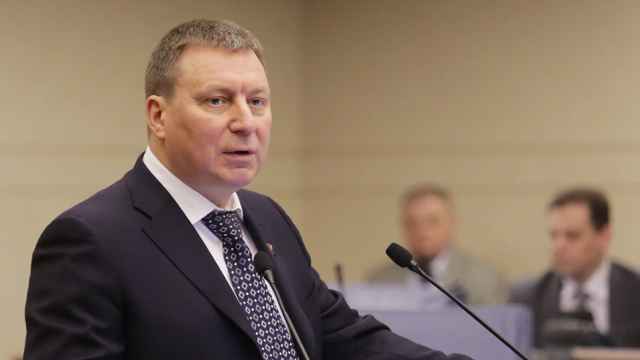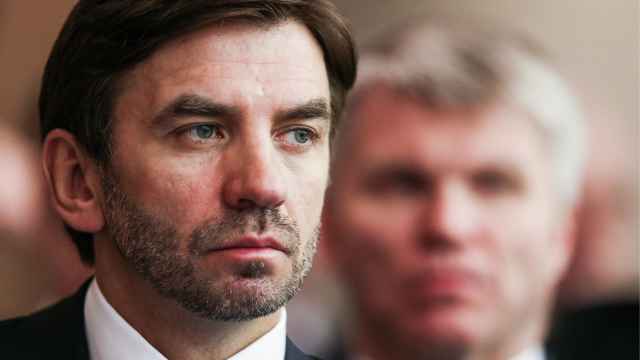As results trickled in early in the morning of Sep. 19, the appearance of a self-declared “independent” in Russia’s most homogenous parliament ever raised a few eyebrows. But few were aware of the history of the new deputy, a man who once rode high in the hierarchy of the United Russia (UR) party and who seven months ago was included on Interpol arrest lists.
Billionaire Vladislav Reznik’s election to a single-mandate district in the Republic of Adygea was perhaps the biggest surprise in Sunday’s otherwise predictable election.
A former UR deputy and vice-chairman of the party’s finance committee, Reznik faced charges for alleged money-laundering and connections to a criminal group. Although he had been removed from the United Russia lists, the party did everything to make sure he was elected. Unusually, there was no candidate from United Russia running in his constituency, and the local party even endorsed his candidacy in campaign literature.
Reznik admitted he had not set foot in the republic before July, but no resource was spared in the campaign. His election materials were ubiquitous, flooding the streets of Adygea’s capital, Maykop, long before his official registration as a candidate for the Duma elections. Locals, however, remained largely ignorant of the candidate unexpectedly dispatched to them. For weeks, “Who is Reznik?” trended as the most widely discussed topic on Adygea’s social media. Bewilderment continues to this day, with some locals taking to the internet to ask each other if anyone at all voted for him. (Official results say more than 100,000 voters cast ballots for Reznik.)
Maykop’s city administration tried hard to make sure everyone saw Reznik. For starters, Maykop Mayor Alexander Narolin is said to have organized “voluntary” meetings between Reznik and local political organizations, including labor unions. Local kindergartens were covered in his election posters, supposedly hung there “on orders from above.” Children were given drawing boards bearing his name and slogan.
The city administration also faced accusations of illegally distributing Reznik’s promotional materials and publishing them in the local press. Following complaints to the Central Election Commission of Adygea, one online publication was removed, but others remained on the site of the municipal newspaper “Maykop News.”
Who is Mr. Reznik?
Vladislav Reznik’s business career first took off in 1989 when he became the Deputy Chairman of the Soviet Communist Party’s Rossiya Bank. Today, that bank has been widely accused of acting as a mechanism for funneling money to the country’s ruling elite, and was one of the first companies to suffer U.S. sanctions following Russia’s annexation of Crimea.
Reznik has been connected with other prominent figures in Russian politics, including Prime Minister Dmitry Medvedev. As head of the Rus insurance company, Reznik hired Medvedev when he was a young lawyer.
Reznik entered politics in 1999, when he ran as a candidate for “Unity,” United Russia’s predecessor. In 2001, he became deputy chairman of the newly formed United Russia. Six years later, in 2006, he served as the chairman of the party’s finance committee. In 2010, Forbes Russia magazine named him the Duma’s most influential lobbyist. Vedomosti newspaper called him “the grey cardinal and the Duma curator for the insurance market,” while RBC, another financial publication, puts him in “Putin’s inner circle”.
He is a very active and effective deputy, too. His profile on the Duma’s website lists 256 bills introduced or co-sponsored by Reznik. Over half of them passed to become laws.
Throughout his history, Reznik’s alleged criminal connections have been no less spectacular than his political ties.
In March 2016, following years of criminal investigations (2008-2011), the Spanish branch of Interpol issued an international arrest warrant for Reznik and his wife, Diana Gindin. The couple were accused, along with 26 others, of harboring connections to the Tambov mafia group in Spain. The Tambov gang was accused of murder, money-laundering, arms trafficking, and racketeering, as well as fixing regional UEFA championship matches.
Spain’s National Court subsequently upheld an appeal and revoked Reznik’s arrest warrant.
The new State Duma takes office with United Russia dominating the legislature as never before. The parliament’s lower house now includes representatives of six loyal political parties, and just one single “independent” deputy.
Vladislav Reznik is that single “independent” voice. Past history and current loyalties suggest, however, that he won’t be offering much opposition.
A Message from The Moscow Times:
Dear readers,
We are facing unprecedented challenges. Russia's Prosecutor General's Office has designated The Moscow Times as an "undesirable" organization, criminalizing our work and putting our staff at risk of prosecution. This follows our earlier unjust labeling as a "foreign agent."
These actions are direct attempts to silence independent journalism in Russia. The authorities claim our work "discredits the decisions of the Russian leadership." We see things differently: we strive to provide accurate, unbiased reporting on Russia.
We, the journalists of The Moscow Times, refuse to be silenced. But to continue our work, we need your help.
Your support, no matter how small, makes a world of difference. If you can, please support us monthly starting from just $2. It's quick to set up, and every contribution makes a significant impact.
By supporting The Moscow Times, you're defending open, independent journalism in the face of repression. Thank you for standing with us.
Remind me later.


